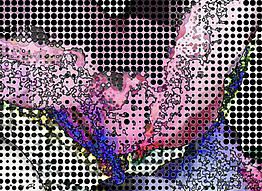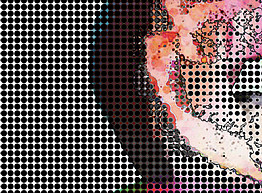CALL FOR PAPERS
Call for Papers
Creative Bodies—Creative Minds
The third international, interdisciplinary conference in gender research
25-26 March 2024, University of Graz, Austria
Organized by:
Sociology of Gender section, Department of Sociology, University of Graz, Austria;
FH JOANNEUM– University of Applied Sciences Graz;
Centre for Southeast European Studies, University of Graz.
Theoretical discussions on creativity in the last two decades have addressed existing dichotomies in its conceptualization, such as professional/everyday and public/private. Cultural studies have then been critical of creativity being approached in terms of the individual talent and elite (“creative class”), in economic terms (“creative industries”) or in terms of exclusive locations (“creative city”)[1]. Gender scholars, in the meantime, have levelled criticism at the gendered definition of creativity, too often conceived as a property of a lone male genius, and at the gender bias of research on creativity that had tended to overlook activities in which women typically engaged [2].
Currently, in the European cultural/political space we witness a rise in the use of diverse artistic, creative, and playful tactics and practices in protests and everyday activism which challenge structural inequalities intersecting gender, class, race, ethnicity, sexuality, age and (dis)ability. Such examples of creative expression, including arts, crafts, participatory practices, and/or aesthetic interventions in public space [3], and in feminist and queer politics, in particular (e.g. “craftivism” [4], “artivism”[5]) challenge the common understanding of what constitutes political, as well as creative activities. Likewise, studies on socially engaged art in Southeastern Europe that have conceptualized “creative work […] as a labor of care and compassion” [6] make us think beyond the ideas of creativity in terms of individual self-expression.
The third Creative Bodies—Creative Minds Conference 2024 will explore the gendered and political aspects of current, historical or everyday creative practices. DIY-making, as a form of everyday creativity, carries a different meaning in different political regimes (such as in the former Eastern Bloc, liberal market democracies, or post-colonial context). Covid-19 pandemic and lockdowns exemplify how everyday creative practice is/was an adaptive response to external circumstances. We witnessed how digital media enabled sharing of creative responses to the constraints, including the use of humor (“from zines to memes”) to cope with the situation, express care and solidarity, and maintain relationships. We are interested in exploring creative adaptations to external circumstances across different political, economic and gender regimes.
Keynote speakers:
Věra Sokolová, Department of History, Charles University, Prague
Milica Tomić, Institute for Contemporary Art, Graz University of Technology
The areas of interest for the CBCM 2024 conference include, but are not limited to:
- creativity and intersectional activism;
- arts, crafts, play as activist and political tools;
- reparative cultural and political practices;
- creative living as an adaptation to different biopolitical regulations;
- (everyday) creativity across different political, economic and gender regimes;
- creative labor (precarity, rethinking work/productivity, collective organizing);
- creative, playful, fun and politicized use of space and time (e.g. festivals, parks and clubs);
- intersectional activism and digital media;
- humor, playfulness and fun in feminist and LGBTQ+ activism;
- creativity as care for others, collective and solidary creativity;
- DIY, maker movement: from knitting, through home-making to open source;
- material, processual and relational aspects of creative practices;
- the place of creative methodologies and creative research in teaching and scholarly research in social sciences and humanities.
We are inviting proposals for presentations from scholars, practitioners and postgraduate students from a wide range of disciplines including, but not limited to: sociology, cultural studies, anthropology, human geography, political science, gender studies, art, performance, history, literary studies, social studies of science and technology and environmental studies.
Please send a 250-word abstract and a 150-word bio note before 10th September 2023 to creative.bodies(at)uni-graz.at
Registration fee: 190 EUR
Registration fee (student presenters): 130 EUR
The conference registration fee includes the conference dinner, two lunches, tea/coffee breaks and the conference pack with the book of abstracts.
Information on registration and updates on the program will be available on the conference website:
https://creative-bodies.uni-graz.at/en/
Graz, a UNESCO World Cultural Heritage Site and Cultural Capital of Europe for 2003, is the capital of the Austrian province of Styria and the home of Austria’s second largest university.
Conference organizers:
Libora Oates-Indruchová, Professor of Sociology of Gender, University of Graz
Zorica Siročić, Assistant Professor, Department of Sociology, University of Graz
Birgit Bachler, FH JOANNEUM – University of Applied Sciences Graz
Florian Bieber, Centre for Southeast European Studies, University of Graz
Wolfgang Kühnelt, FH JOANNEUM – University of Applied Sciences Graz
Biljana Purić, Centre for Southeast European Studies and Institute of Art History, University of Graz
Gudrun Reimert, FH JOANNEUM – University of Applied Sciences Graz
Important dates:
Submission of abstracts: 10 September 2023
Informing about abstract acceptance: mid-November 2023
Conference registration opens: 15 December 2023
Conference registration ends: 31 January 2024
References:
[1] Oates-Indruchová, Libora and Jana Mikats. 2022. “Gender Perspectives on Professional and Everyday Creativities: Introduction to the Special Issue”, Cultural Studies 36 (5): 699-712.
[2] Eisler, Riane and Alfonso Montuori. 2007. “Creativity, Society, and the Hidden Subtext of Gender: Toward a New Contextualized Approach,” World Futures (63): 479-99.
[3] Sommer, Doris. 2014. The Work of Art in the World: Civic Agency and Public Humanities. Duke University Press.
[4] Cvetkovich, Ann. 2012. Depression: A Public Feeling. Durham, NC: Duke UP.
[5] Mouffe, Chantal. 2007. “Artistic Activism and Agonistic Spaces”. Art & Research: Chantal Mouffe, Arts & Research. (Available at www.artandresearch.org.uk/v1n2/mouffe.html, last accessed 30.11.2022)
[6] Alacovska, Ana. 2020. “From Passion to Compassion: A Caring Inquiry into Creative Work as Socially Engaged Art.” Sociology 54 (4): 727–44.



